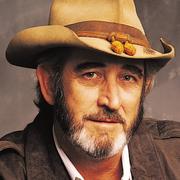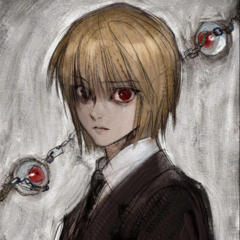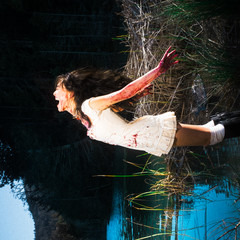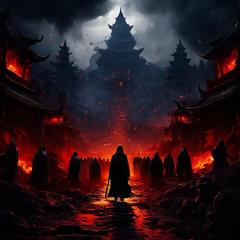Don Williams
在众多的乡村民谣大师中,Don Williams无疑是其中最优秀的一个。Don Williams于1939年5月27日在德州的弗罗伊达达(Floydada)出生,三岁就显露出天才的本领,在一次歌唱比赛中赢得一个闹钟。高中毕业后与好友罗夫顿·克莱恩(Lofton Kline)一起组成乐队演唱,随后在1964年又加入了苏珊·泰勒(Susan Taylor),组成一只新的乐队Pozo-Seco Singers。当Pozo-Seco Singers散伙后,他到了乡村音乐的大本营田纳西州的纳什维尔发展,到了上世纪70年代已经成为炙手可热的乡村音乐人物,成为美国主流流行音乐的风向标,还在欧洲赢得广泛的声誉。1978年被美国乡村音乐协会授予年度男歌手奖。从1973的第一张专集《Don Williams Volume I》到现在,Don Williams总共发行了31张专集。 Don Williams歌喉浑厚,歌路抒情优美,他的歌声始终给人以温暖柔和的感受,仿佛置身在美国空旷的、一望无际的大西部,坐在篝火边,悠扬的歌声伴着琴声在静谧的夜色中飞扬,诉说着对亲人的思念,对爱侣的深深爱意,这轻柔的歌声随风飘送到亲人与爱侣的身边感受这份亲情 With his laid-back, straightforward vocals and large, imposing build, Don Williams came to be known as the Gentle Giant. That nickname was bestowed on him in the early 70s, when he began a string of countrypolitan hits that ran into the early 90s. Williams was never known as an innovator, but his ballads were immensely popular; in the course of his career, he had a total of 17 number one hits. Williams began playing guitar when he was child, learning the instrument from his mother. As a teenager, he played in a variety of country, rockabilly, folk, and rock & roll bands. After completing high school, he formed his first band with a friend called Lofton Kline. Williams and Kline recruited another singer, Susan Taylor, and formed the Pozo-Seco Singers, a folk-pop group, in 1964. The following year, the band signed a contract with Columbia Records. In 1966, the Pozo-Seco Singers had a pop hit with Time, which climbed into the Top 50. For the next two years, they had a series of minor hits, highlighted by two Top 40 hits in late 1966, I Can Make It With You and Look What Youve Done. The group stayed until 1971.After the Pozo-Seco Singers disbanded, Williams decided to pursue a career as a songwriter in Nashville, since he wasnt convinced that he was suited for a solo career. He signed with Jack Clements Jack Music, Inc., initially just as a songwriter. By the end of 1972, he had signed with JMI as a solo artist, releasing Dont You Believe as his debut. The song went nowhere, but The Shelter of Your Eyes climbed to number 14 at the beginning of 1973. For the next year, Williams scored a string of minor hits before he had his 1974 breakthrough, We Should Be Together, which reached number five. The single led to a contract with ABC/Dot. I Wouldnt Want to Live If You Didnt Love Me, his first single for ABC/Dot, reached number one in the summer 1974. The single launched a string of Top Ten hits that ran more or less uninterrupted until 1991; between 1974 and 1991, only four of his 46 charting singles didnt make the Top Ten. Instead of reaching the top of the charts with his original material, most of his big hits were covers of other songwriters, including John Prine, Bob McDill, Dave Loggins, and Wayland Holyfield.During the 70s, Don Williams became the most successful country artist in the world. His country-pop not only crossed over into the American pop mainstream, it also gained him a large following in England and Europe. In addition to his Top Ten hits, Williams won several country music awards, highlighted by the Country Music Association naming him Male Vocalist of the Year in 1978, the same year his number one single Tulsa Time was named Single of the Year. In the late 70s, he began acting, appearing primarily in the films of his friend Burt Reynolds, including W.W. and the Dixie Dancekings and Smokey and the Bandit II.In the early 80s, Williams slowed down the pace of his career slightly, as he was suffering from back problems. Nevertheless, the hits continued to come and many of his singles reached number one. In 1986, he left MCA Records — who had acquired the ABC label while he was recording for it — signing with Capitol. The change in labels didnt affect his career at all, as he continued to hit the Top Ten with regularity. In 1987, he underwent back surgery, which cured his problems.Williams signed with RCA Records in 1989. Initially, he continued to have hits, but his streak came to an end in early 1992, following his last Top Ten single, Lord Have Mercy on a Country Boy. Although he continued to perform in the mid-90s, he had effectively retired to his Nashville farm, returning to recording in 1998 with I Turn the Page.


 Till The Rivers All Run Dry(Live In The UK) - Don Williams
Till The Rivers All Run Dry(Live In The UK) - Don Williams
























